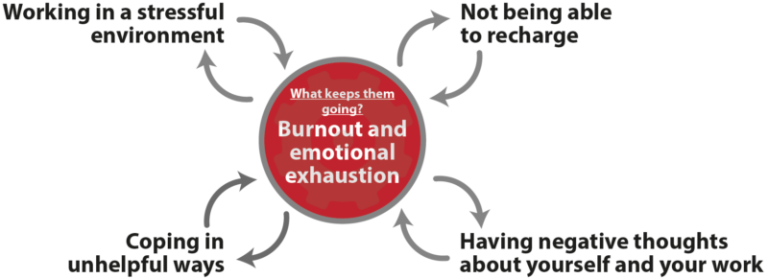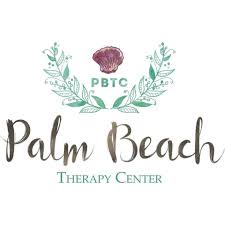Understanding the Benefits of Couples Therapy: A Path to Stronger Relationships

Relationships take work, and sometimes, even the strongest partnerships can face challenges. Whether it’s communication issues, trust problems, or emotional disconnection, couples therapy can provide the guidance needed to overcome these obstacles and build a healthier, more fulfilling relationship. This article explores the key benefits of couples therapy, common issues it can address, and how to find the right therapist to support your journey.
What Is Couples Therapy?
Couples therapy, also known as marriage therapy or relationship counseling, is a type of psychotherapy designed to help partners in a romantic relationship address issues and improve their emotional bond. Through therapy, couples can learn how to communicate more effectively, resolve conflicts, and enhance their intimacy.
Therapists who specialize in couples therapy help partners gain a deeper understanding of each other’s needs, desires, and emotions, leading to greater empathy and stronger relationship foundations.
Common Issues Addressed in Couples Therapy
Couples therapy can address a wide range of relationship challenges. Some common issues couples seek therapy for include:
1. Communication Problems
Poor communication is one of the most common reasons couples seek therapy. Whether it’s misunderstandings, lack of emotional expression, or constant arguing, improving communication skills is often a primary focus of therapy.
2. Trust and Infidelity
Trust is the cornerstone of any healthy relationship. When trust is broken, whether through infidelity or other betrayals, couples therapy can provide a safe space to rebuild trust and repair emotional wounds.
3. Emotional Intimacy
Emotional distance can creep into relationships over time. Couples therapy helps partners reconnect on a deeper emotional level, fostering understanding, vulnerability, and closeness.
4. Conflict Resolution
Every couple has disagreements. Therapy can teach healthy conflict resolution techniques, helping partners navigate differences without escalating into destructive arguments.
5. Life Transitions
Life changes such as marriage, parenthood, career shifts, or relocation can strain relationships. Couples therapy can support couples in adjusting to these transitions and maintaining a healthy bond.
6. Sexual Issues
Sexual difficulties, whether physical or emotional, are common issues in relationships. Couples therapy can address these challenges by promoting open communication and addressing underlying concerns.
The Benefits of Couples Therapy
Investing time and effort in couples therapy can yield numerous benefits for both individuals and the relationship as a whole. Some key advantages include:
1. Improved Communication
One of the primary goals of couples therapy is to teach partners how to communicate more effectively. Couples often learn to listen more attentively, express their feelings more clearly, and respond to each other in a more empathetic way.
2. Rebuilding Trust
Trust is fragile, but with the help of a skilled therapist, couples can work through betrayal, misunderstandings, or breaches of trust. Therapy helps partners express their emotions, rebuild security, and create a foundation for moving forward together.
3. Strengthened Emotional Bond
Couples therapy can deepen emotional intimacy by fostering understanding and empathy between partners. When both individuals feel heard and understood, it strengthens their emotional connection and enhances the quality of their relationship.
4. Increased Satisfaction
Therapy helps couples identify areas in their relationship that need attention and work together to improve them. This leads to greater satisfaction, happiness, and fulfillment in the relationship.
5. Better Conflict Resolution Skills
Learning healthy ways to resolve conflicts reduces the likelihood of arguments escalating into full-blown fights. Couples therapy can equip both partners with the tools to handle disagreements constructively and keep the relationship strong.
6. Enhanced Relationship Satisfaction
By addressing underlying issues and improving communication, couples therapy helps partners develop a more satisfying and fulfilling relationship. Couples are better equipped to navigate life’s challenges together, which leads to a more harmonious partnership.
How to Find the Right Couples Therapist
Choosing the right therapist is crucial for a successful therapy experience. Here are some steps to consider when looking for a couples therapy professional:
1. Identify Your Needs
Every relationship is unique, so it’s important to choose a therapist who specializes in the issues you’re facing. Some therapists focus on specific areas like communication, trust issues, or infidelity, while others take a more holistic approach.
2. Check Credentials and Experience
Make sure the therapist is licensed and has experience working with couples. Look for certifications like Licensed Marriage and Family Therapist (LMFT) or Licensed Professional Counselor (LPC).
3. Read Reviews and Ask for Recommendations
Personal referrals can be invaluable when looking for a trusted couples therapist. Ask friends, family, or your healthcare provider for recommendations, or look up online reviews from other clients.
4. Consider the Therapist’s Approach
Therapists use various approaches in couples therapy, such as Cognitive Behavioral Therapy (CBT), Emotionally Focused Therapy (EFT), or the Gottman Method. Learn about different approaches to determine which might be the best fit for you.
5. Schedule a Consultation
Many therapists offer an initial consultation, which allows you to determine if you feel comfortable with their style and approach. It’s important to choose a therapist you both feel safe with and who understands your concerns.
How to Make Couples Therapy Work
Couples therapy can be incredibly rewarding, but it requires commitment and effort from both partners. Here are some tips to make the most of your therapy sessions:
1. Be Open and Honest
Therapy is a space to be vulnerable and honest about your feelings. Avoid holding back or being defensive, as this can hinder progress.
2. Stay Committed
Even when therapy gets tough, stay committed to the process. Relationship issues take time to resolve, and consistency is key to success.
3. Work Together
Therapy is a joint effort. Both partners need to actively participate in the process and work together to make positive changes in the relationship.
4. Be Patient
Change doesn’t happen overnight. Be patient with each other and with the process, and celebrate the small victories along the way.
Conclusion
Couples therapy is a valuable tool for strengthening relationships, overcoming challenges, and improving communication. Whether you’re dealing with trust issues, emotional disconnection, or simply want to enhance your relationship, therapy can provide the tools and support needed for a healthier partnership. If you’re considering couples therapy, take the time to find a qualified therapist who can help you both achieve your relationship goals and build a lasting, loving bond.






